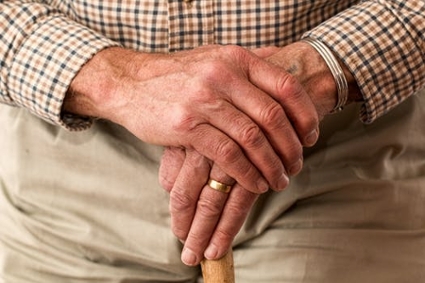I was recently at home in NJ visiting my family for the holidays when my grandma mentioned intermittent hearing loss. She’d never mentioned anything before, and she’s been in seemingly great health for many years. More importantly, she’s only in her early sixties with no significant medical complications in the past. And as far as we know, she isn’t predisposed to anything based on heredity. Nevertheless, I’m worried something could happen to her with compromised hearing, especially since she’s living entirely alone, having unexpectedly lost my grandpa only a few years ago. She’s an extremely independent woman with a lot of heart, and I know she’d hate the idea of living permanently with my parents. She’d probably think she was an unnecessary burden, which obviously isn’t true. I know they’d enjoy her company and the solace of knowing she was doing alright. Am I being too overprotective and blowing things way out of proportion, or is there a genuine reason to be concerned?
You have every reason to be fearful about the possibility of something unfortunate and potentially tragic happening to your grandma. A compelling new report found that elderly individuals living alone are 50% more likely to die before their time, which has profound implications for the rapidly growing elderly population in the US. And according to experts at the Centers for Disease Control and Prevention (CDC), unexpected falls are the leading cause of death and injury amongst the American elderly. Even for those fortunate enough to survive a serious fall, it can often spell the conclusion of their independent lives.
While stories of satisfied and healthy seniors certainly exist, they can tend to be few and far between, especially in societies dominated by youth-centric culture and the allure of independence. There’s no simple solution to the growing predicament in which you find yourself now squarely situated. Something to first consider is how you should frame the conversation with your grandma. Research already suggests that beginning with empathy is the best approach for professionals, but the lesson is likely more universally applicable.
Explore the published literature documenting sure signs that individuals shouldn’t be living alone. Take note of anything that seems similar to your grandma’s situation. Another sound strategy (no pun intended!) is to investigate the prevalence of hearing loss in adults. Approaching the conversation from both sides of the argument will ensure sensitivity to her feelings, which is crucial.
On a more positive note, should you discover that temporary and intermittent hearing loss is the only thing she’s experiencing, then you’re in luck because it can be easily diagnosed and treated by a practicing audiologist. The greater New York/New Jersey metropolitan area has within its vicinity some of the best and most talented medical practitioners in the country. Perhaps you’d even consider visiting the JFK’s New Jersey Center for Audiology together. Even a brief consultation with a medical professional can have extraordinary outcomes. Just remember to start from a place of empathy.
“…treat people with understanding when you can, and fake it when you can’t until you can.” — Kim Harrison


